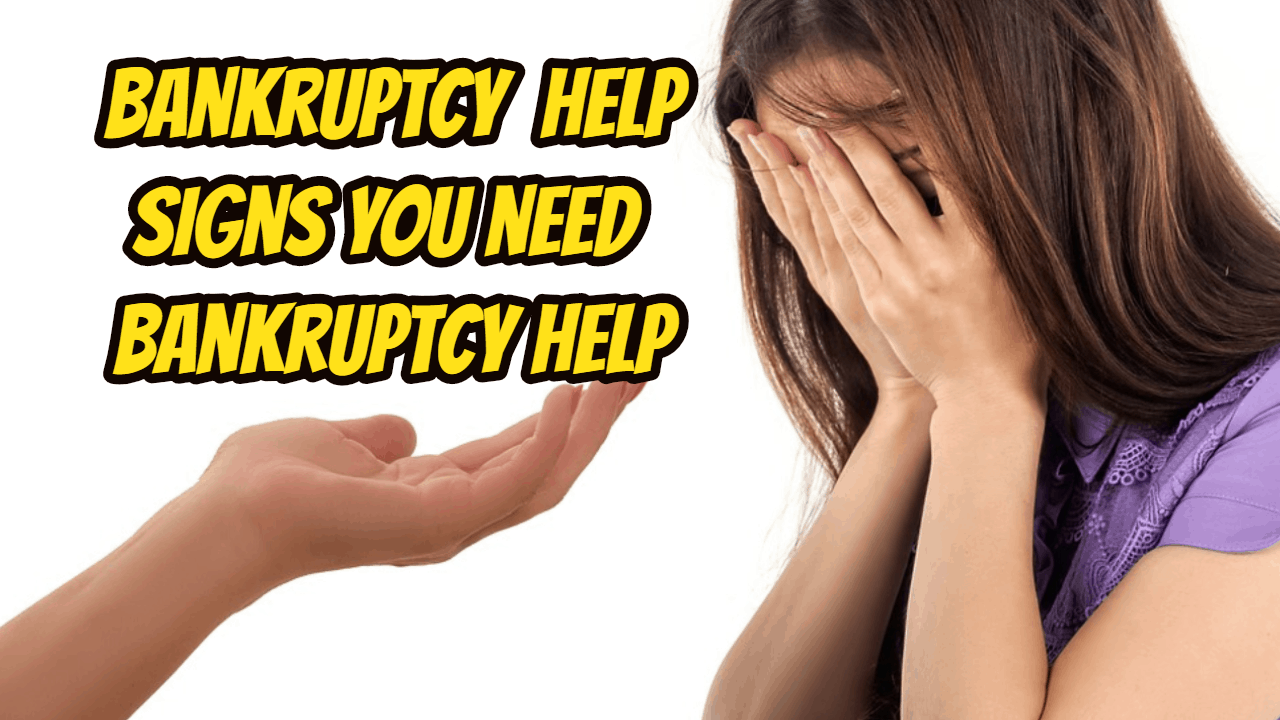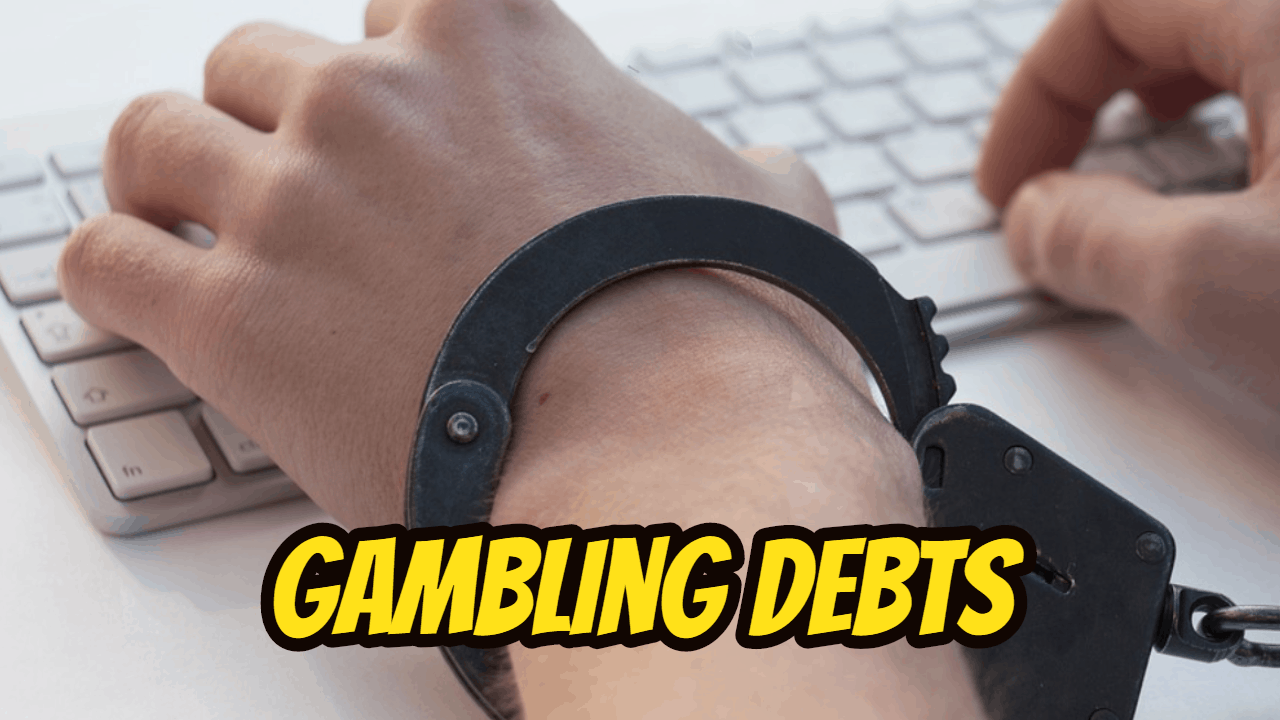
If you would rather listen to the audio version of this bankruptcy help Brandon’s Blog, scroll down to the bottom and click on the podcast.
Bankruptcy help: Introduction
When people ask for bankruptcy help, they really don’t want to talk about bankruptcy. What they are really asking for is help in eliminating the pain, suffering and stress they are going through dealing with their unmanageable debt. They want solutions to avoid bankruptcy. In this Brandon’s Blog, I discuss the debt danger signals and provide solutions to avoid bankruptcy.
As a licensed insolvency trustee (formerly known as a bankruptcy trustee), we are the only professionals licensed and monitored by the Federal Government. We provide options and proposed solutions to people and companies with too much debt. Our main goal is to help people and companies AVOID bankruptcy while solving their debt problems.
Bankruptcy help: 10 signs that you need help
- Your total debt has increased over the past year. You may be making minimum payments on some debt, paying down other debt, but increasing your debt in total. You have not accomplished anything in reducing your debt in the past year and this means you need help.
- Justified purchasing a new vehicle even though your existing one is fine, just not new. Taking on more debt just because of a “want” but not a “need” is irresponsible. You need help.
- Bought a new house with a larger mortgage, or mortgages, because you expect your income to rise in the future. Wages and salaries are not increasing in any real way. They are flat. Voluntarily carrying a larger debt load hoping that sometime in the future your income will catch up to your cash needs is not a responsible way of handling your affairs. You need help with your debt.
- Have borrowed money to go on a vacation. You should never go into debt to purchase something that is going to vanish in a week or two. The vacation will be gone but the debt will remain. If you can’t afford a vacation, you can’t go on one.
- Justify purchases based on what your peers are buying. Again, going into more debt because you want things your friends are buying is not a good reason. Their situation is not your situation. Maybe they can afford those things but you can’t. Maybe they can’t afford those things and will end up in bankruptcy. You just don’t know. Again, you can’t go into debt for “wants”.
- You have no emergency fund saved up. Recent surveys have shown that Canadians may be a few hundred dollars away from a financial disaster. Many Canadians are living paycheque to paycheque. You don’t know when a medical emergency, job loss or the need to replace a major appliance will happen. You need an emergency cash fund to cover those emergencies. If you have too much debt and no emergency fund savings, you need debt help.
- No retirement savings. It is never too soon to start planning to save a certain part of your take-home pay for retirement. A proper household budget will allow for such savings. If you are constantly battling your debt and have no money for savings, you need debt help.
- You quit your job without having another one lined up. This is probably the most irresponsible thing you can do. It may seem obvious to you, but trust me, I have seen it. The best way to land a better paying job or position is when you already have one. Trying it any other way is pure folly, especially when you have too much debt. Your regular monthly debt payments will not wait for you to have your income stream rolling again. Keep in mind that I am not talking about someone who is downsized and was given a package. I am talking about someone who quits without having new employment ready to go to.
- You are always borrowing from one source to pay down another. There isn’t enough money from your earnings to make your required debt payments. The fact is that you are borrowing from Peter to pay Paul. You’re in trouble and need debt help.
- You ignore your partner’s bad money habits or worse, financial infidelity. Your money habits may be impeccable. However, ignoring your partner’s money problems will bring you down too. You both need debt help.
Bankruptcy help: How we provide debt help
The first thing we offer is a free first consultation. You explain to us the financial issues you are facing. Then we talk to you about your family assets, liabilities and income. We then describe to you some possible options to help you overcome your debt problems. More information will be needed from you, but at least we start by setting your mind a bit at ease by telling you that your situation is not hopeless and we can give you solutions. All of the solutions we offer, except maybe one, are all so you can avoid bankruptcy.
The takeaways we want everyone to get from this free consultation is that you feel:
- We have empathy for your situation.
- A rapport has been built.
- We are the kind of people you can see yourself working with.
- You trust us.
If you wish to go ahead with our solving your financial and debt problems, the next step is that we have you complete our standard intake sheet called the Debt Relief Worksheet. A fully completed worksheet, complete with backup documents, allows us to drill down into all the issues and come up with our definitive recommendations.
Bankruptcy help: What are some possible solutions
The range of possible solutions depends on when we get to speak with you. Most people wait until they have no more credit line to use. Sometimes it takes a major event like the Canada Revenue Agency garnisheeing their bank account or wages before they realize they have a debt problem. The earlier you recognize there might be a problem and come speak with us, the more options we will have for you to solve your debt problems.
The range of options might include:
Credit counselling is in fact debt therapy. We give advice with a host of concerns connected to debt consisting of budgeting, debt remedies, working with your lenders as well as restoring credit scores.
Debt consolidation is replacing all of your debts with new single financing at a lower overall interest rate so that you only have one debt to focus on reducing.
A consumer proposal is an official deal made to your creditors under the Bankruptcy and Insolvency Act (Canada) to customize your repayments; e.g. paying a lesser amount every month for a longer amount of time and paying in total less than you owe. Another benefit is that the interest clock stops the moment you file your consumer proposal.
If none of the above 3 possible solutions to avoid bankruptcy will work for you, then you are a candidate to file for bankruptcy so that you can end the pain and stress your debts are causing you. This way you can be Starting Over, Starting Now.
Bankruptcy help: Do you have too much debt?
Do you have too much debt? Are you stressed that future interest rate increases will make currently affordable payments completely unaffordable? Is the pain, stress and anxiety hurting your wellness and health?
If so, speak to the Ira Smith Team today. We have decades and generations of helping people and companies looking for financial restructuring. As a licensed insolvency trustee (formerly called a bankruptcy trustee), we are the only experts licensed and supervised by the Federal government to provide insolvency services.
Call the Ira Smith Team today for your free consultation and to make sure that we can begin assisting you to return right into a healthy, balanced, hassle-free life.
[monkeytools msnip=”http://monkeyplayr.com/playr.php?u=5173&p=20280″]


